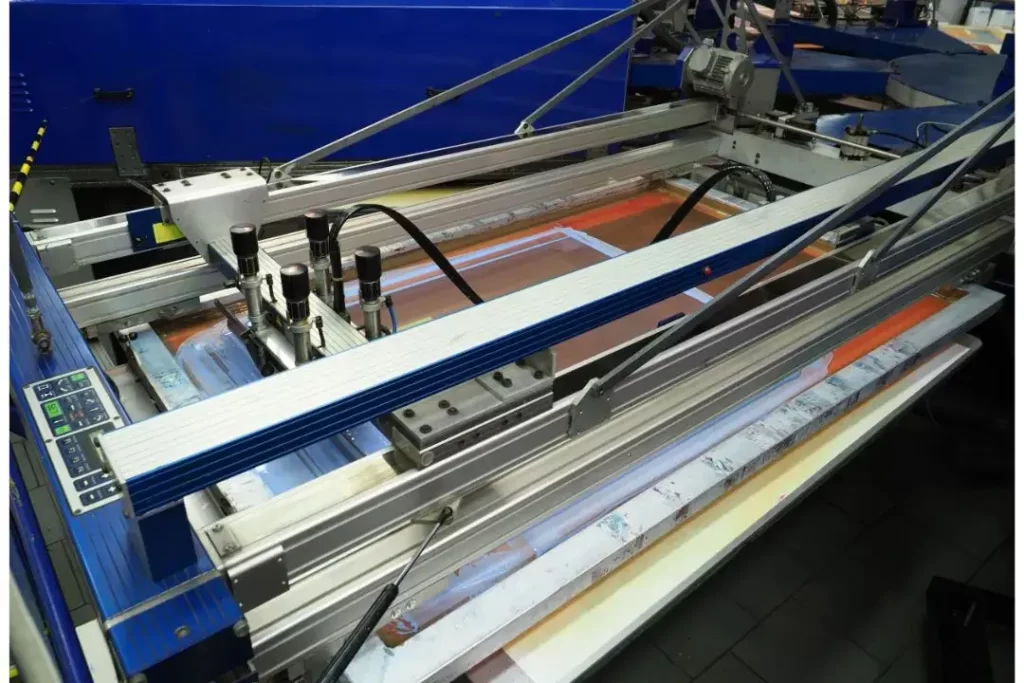
Why Clothing Brands Fail
Top Different Types of Shirts for Women and Men Top Different Types of Shirts for
The Untold Trend In Printing Industry You Never Knew Before
This story begins with a few splashes of ink and creative obsession blooming into one colorful pattern all over the place- we call it `All Over Printing`. Imagine having your design stretch uniquely over your fabric, covering every bit with lush dramatic designs creating an immersive style – such is the wonder of “All Over Printing”! Let’s explore its vibrant journey!
The term `All Over Printing` or AOP as connoisseurs call it, refers to preparing a garment splashed with designs that seamlessly connect to cover the complete canvas called fabric. This differs from common localized designs and slides into a full spectrum of creativity blanketing the complete garment material. Truly, it’s the pictorial language wearing your visionary thoughts free!

The origins of all-over printing can be traced back to the versatile age of the 19th century. A sewing machine that sews images and not just stitches, on extensive clothing, redolent this marvellous imprinting idea. Fired by the pursuit of breaking boundaries of art and fashion, this innovation captured the attention of the hearts giving them free reins to colorize the canvas skies how they intended!
The All-Over Printing Process In the magical realms of all-over printing, an unprinted garment transforms into a beautiful canvas on which your imagination blossoms. This process operates either in a ‘cut-and-sew-manufacturers‘ method or ‘Print and Sew’ technique. The `Cut and Sew` methodology first commences with designing bold patterns onto the fabric bolts, which are then cut and sewn together into desired garments. On the other hand, `Print and Sew` method designs get directly imprinted onto pre-sewn garments. Voila! There you have stunning dresses washed in oceans of creativity!
The breadth of All-Over-Printing doesn’t just stop, there is an array of techniques employed to introduce artistry into the fabric. Let’s take a look at few:
Taking a different route from traditional printing that usually adorns a single area of the cloth, all overprinting leverages the entire garment as its vast canvas. It offers immense room for creativity as you can fill every part of each garment piece with designs delivering uniqueness that is hard to duplicate. Furthermore, full-print clothing signifies exclusivity, adding great value in the world of high fashion.
With all things boasting many lights comes the shadow as a counterpart. The downsides of AOP include investment into technology and bigger orders affecting small-scale businesses first starting to dabble into full canvas decorating. The complexity of certain printing processes also amounts to lengthy pre-production, extended timelines, and a skill set not readily available to everyone. Also, despite the excessive spread of illustrations, one cannot overlook the seams and sizes that challenge getting a seamless and cent-percent visual result.
With every technique showcasing its uniqueness, one could grapple with a suitable choice. Keep in mind, the selection reflects both your requirement and resource feasibility. A few considerations can be the material of your clothing, budget constraints, the scale of production, timeline, desired design complexity, and the quality you aspire to. Assessing these critical factors, one should match to select the technique wisely.

Dynamic and robust, the future of all-over printing simmers in the cutting-edge strides in printing technology and relentless creativity soaring new horizons. With advancements such as 3D-sublimation printing promoting an even more immersive aesthetic experience, the all-over printing space proves to be vibrant and constantly evolving embellishing our doors to many brilliant possibilities.

Deck up ready as we have uncovered the world of All Over Printing and its vivacious unfolding stylish trends together from delicate introduction to its glorious future boost. Rendering the world-by-world, turn-by-turn, we must confess the dye in this immersive fashion style is hard to wash off! Enjoy navigating the complete fabric painting genre: from its birth tale, through its bespoke process, tripping over the corners of its print techniques, to inhaling a hearty scoop of its pros, and cons and maneuvering the choice selection right, till breezing over its thriving future ahead. With myriad colors enriching our style spaces and diverse techniques brightening the aesthetic spectacle, we continue crawling uniquely pan-printed canvas to exciting mornings of fashion!
The main advantage of all overprinting is that it allows for complete design creativity and freedom. It uses the whole garment as a canvas rather than limiting you to a specific region, which means that you can get your vision translated onto your clothing pieces without any restrictions.
all overprinting typically utilizes specialized equipment and hence can be slightly more costly than conventional printing. However, the total cost might depend on the required design intricacy and production scope.
All-over printing is versatile which makes it suitable for a wide variety of clothing items; from t-shirts and sweatshirts to dresses, jackets, and even pants. Fabrics that are most commonly used complementing AOP techniques include cotton, polyester or a blend of the two, based upon the chosen technique.
Yes, the results of All-Over Printing are typically permanent and long-lasting on clothes. As with any garment though, especially designed clothes utilizing AOP should be appropriately cared for, in order to preserve the quality of the print over time.
While AOP is an innovative method for clothing design, there may be challenges concerning print quality across seams and sections due to fabric stretching, particular design positioning, and certain sizing restrictions. Nonetheless, practicing adequate planning and working alongside a skilled printing service can help overcome these obstacles.
Expert Custom Clothing Manufcaturer

Top Different Types of Shirts for Women and Men Top Different Types of Shirts for

What You Must Know About Clothing Samples? Before You Produce a Single Garment: What You

How Much Does It Cost To Make a Hoodie A Complete Cost Breakdown for Custom

Discover the Types of Buttons Discover the Types of Buttons That Transform Style and Functionality
Most Recent Posts
Expert Custom Clothing Manufcaturer
Join our Mailing list!
Get all latest news, exclusive deals and updates.